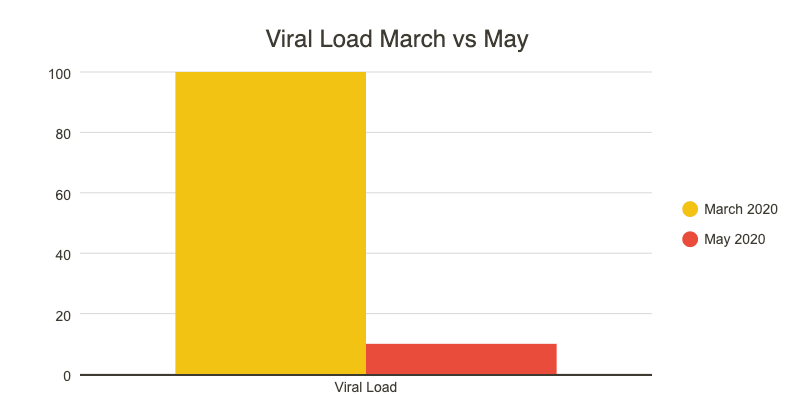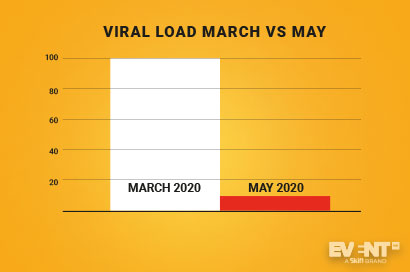Skift Take
New research in Italy, the epicenter of the European Covid-19 outbreak, potentially reconfigures the comeback of the event industry. If confirmed, better news may be on the way.
Dr. Alberto Zangrillo is the head of the intensive care unit at the San Raffaele hospital in Milan. He has seen first hand the devastation that the virus has brought to Milan, the largest business city in Italy.
A few days ago, he went on record with a shocking statement that brought a mix of criticism and support from the national and international medical community: ‘The virus in Italy no longer clinically exists.’

The statement came as a shock in a country that is yet to release all of its lockdown measures.
In a cacophony of constantly updating news, controversial approaches, and completely different opinions from very reputable medical experts over the past three months, the deciding factor can be only scientific evidence. This is what epidemiologist Brian Labus told me when I asked him about the news:
‘What the doctor sees in the field at the bedside, dealing with individual patients is different than what somebody looking at the data for an entire region or an entire country sees.’
This response pretty much settled the issue: data trumps experience. And the data has told a story of a socially and economically disruptive virus that preys on the vulnerable.
Until today.
Coronavirus Viral Load in May Considerably Lower Than March
Zangrillo followed up with the research from the San Raffaele Hospital, about to be published in the Clinical Chemistry and Laboratory Medicine (CCLM) journal.
The study compares the outcome of 100 Covid-19 tests in March to 100 taken in May. The virus seems to have ‘enormously weakened’ confirmed the co-author of the study, Dr. Massimo Clementi.
The study confirms the experience of other doctors ‘in the field’ in Italy, like Dr. Matteo Bassetti at the San Martino Hospital infectious diseases clinic in Genoa. “The strength the virus had two months ago is not the same strength it has today.”
It’s important to note that “strength” and “weakness” in these senses are referring purely to the viral load — the number of actual individual viral units found in a given test. This is not to be confused with a lower potency virus or one that is somehow genetically different from the coronavirus we originally saw fit to lockdown over.
“We have never said that the virus has changed,” said Zangrillo, who went on to clarify that the results could be due to changes in the pool of those tested.
But where Zangrillo touts the finding as a signal that everything can go back to normal, doctors like Allan Cheng, professor of epidemiology at Monash University in Melbourne, point out that this is precisely what you would expect: “It isn’t unusual that as numbers of infections decrease, you can test more people and … start to pick up more people who are not quite as sick.”
The WHO similarly responded by reinforcing a cautious approach and emphasizing that there is no evidence the virus itself is less severe or communicable.
What the Prospect of Lower Viral Load Means For Events
This study is only one piece of the evidence we would need to confirm a lower presence of the virus. If it is confirmed that some factor, like herd immunity or a dwindling community spread, is causing the virus to spread much less rapidly than it used to, there are implications for events that may alter the outlook for the next few months.
So what is changing for your event?
The starting point is the WHO guidelines. Any rumors or even evidence (the study above has a 200 participant sample — still too limited) should be taken with all due precautions.
Nevertheless, there are indications we could draw for the very unstable future of the event industry:
- More Confidence. Countries are reopening, and despite the virus spreading rapidly in some regions, economies are gradually trying to go back to normal. That does not mean that reopening events means high attendance. But a lower viral count in new cases may mean that attendees feel more confident about attending. That may not be the case for corporate attendees, but it may well be for other audiences not at grave risk of illness.
- Events will be out of the spotlight. Superspreader events have been at the center of attention, especially in the early days. Events were the first business activities to be shut down, and we expected the last to resume. Lockdowns were not even in sight when gatherings of more than 10 were banned. Less viral spread may allow events to open up more comfortably, and the projected 20% attendance rates we observed in consumer analysis may increase to 40% or 50%. (Anticipating a 100% attendance comeback in 2020 is still out of the picture.)
- More events may happen. It is important to have more case studies that substantiate the impact events have on the spread of the virus. Without some events reopening, we won’t know what level of risk we are dealing with. The security measures put in place by the WHO should offer somewhat of a sense of security as some events start operating.
Questions Still Remain
While this may sound like great news. It is by no means an invitation to disregard the risk associated with the virus. News outlets are still permeated with horror stories of birthday parties leading to contagion.
The only truth is that we don’t know enough about this virus. What we need to think about though is that this goes both ways.
We don’t know how bad the virus can become, we also don’t know if the virus may lose steam and eventually disappear.
This extremely unstable situation screams for caution. Caution does not mean pessimism, though, and we need to be open to good news coming in.
For those planners that don’t want to risk, virtual and 2021 postponements are the better strategies right now.
A cure, a vaccine or herd immunity may shift that forecast to earlier months.
Thinking about the next two or three months to host your events comes with a call for extreme caution and the commandment to protect your attendees’ safety.





